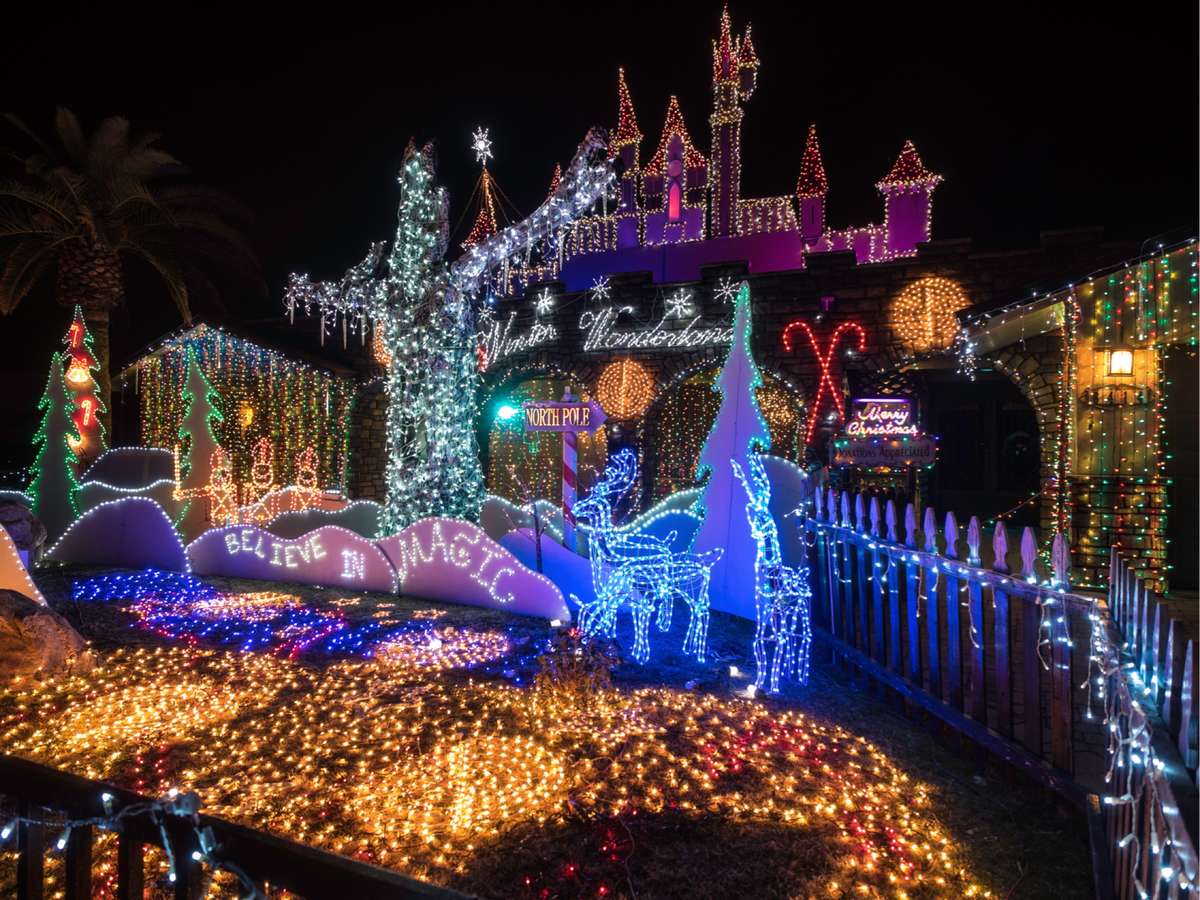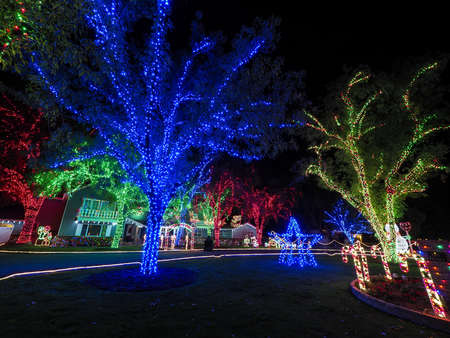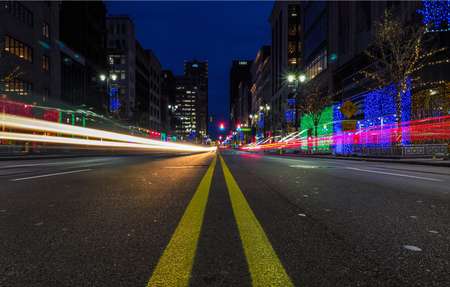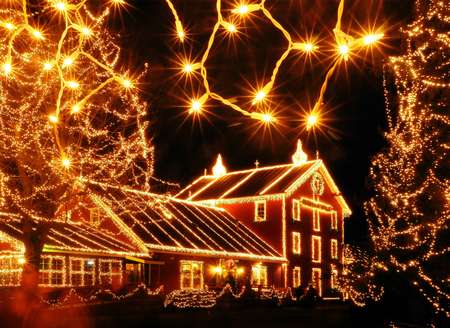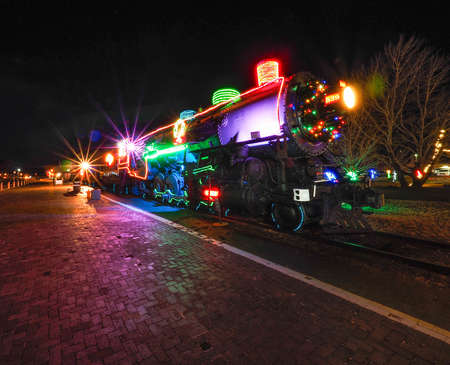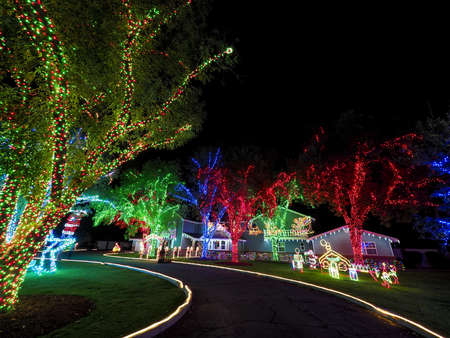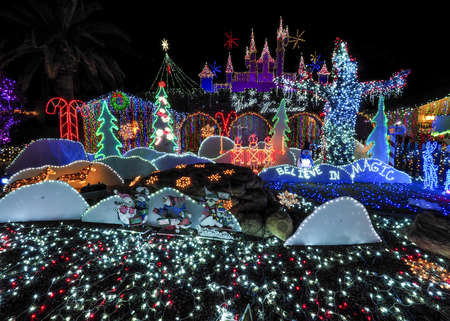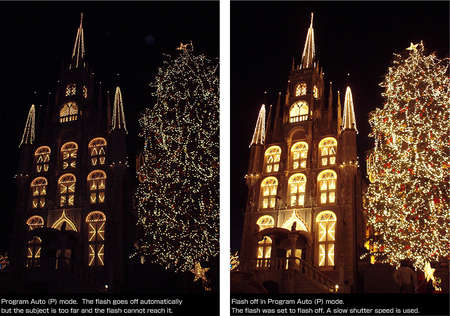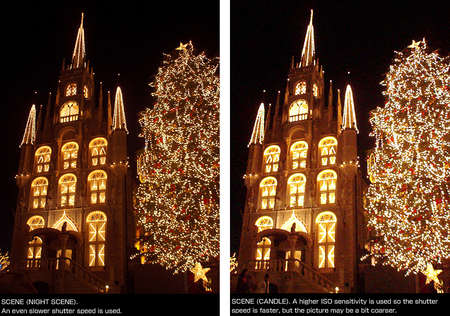During the festive holiday season decorative lights illuminate neighborhoods and cityscapes across the country. The lights are beautiful — sometimes breathtaking — but when you take a picture using your digital camera's AUTO mode, the results are rarely as stunning as the real thing. Take a look at these tips to get a better hold on your holiday photo opportunities.
THE MOST WONDERFUL TIME (OF DAY)
Although holiday lights appear best at night, the best time to photograph them is at twilight (blue hour). This is because at twilight there is enough light in the sky to be able to define tree branches, the roof line of a home or other details. Start shooting about 15 minutes after sunset and then take a shot every five minutes thereafter to get an ideal balance of skylight and the holiday lights.
AVOID OVEREXPOSURE
Depending on the brightness of your holiday lights scene, you may need to adjust your camera's exposure compensation. Colored LEDs in particular may photograph white if they are overexposed. Simply adjusting your exposure, checking the results, and shooting again until you get the desired results will work fine in most situations.
That said, some Olympus cameras offer advanced functions that can help you get a properly exposed image. For example, you could use LIVE TIME to see your photo expose right on the LCD. When the shutter is pressed, the camera begins exposure. Once the desired exposure is reached, press the shutter again to stop the exposure.
WHAT ABOUT LIVE COMPOSITE MODE?
If you want to capture Light Trails AND Christmas lights without overexposing, use Live Composite mode. Check out this pre-dawn image from Olympus Photographer, Mike Boening. Mike used the OM-D E-M1 Mark II’s Live Composite mode at a .6 sec interval for about 1 minute to capture light trails without overexposing the Christmas lights in the shot.
Mike’s recommendation: "Use features like Live Composite either at night or just before sunrise during the ‘blue hour.’ Christmas lights make a great stable feature in Live Composite images – you have the vivid Christmas lights mixed in with the light streaks from the cars going by. Just make sure you are careful and stay out of the way of traffic! If you have a chance to get down low, give it a try. You’ll be surprised how a change in perspective changes the whole shot."
Want to learn more? Check out this tip from Mike to see how he used Live Composite to create a WARP SPEED effect.
KEEP IT STEADY
If you're driving around and snapping shots of holiday lights, you probably won't have a good way to stabilize the camera – so use your camera's Image Stabilization Mode. This allows you to hand hold the camera at lower shutter speeds.
USING A TRIPOD?
If you want to shoot at slower shutter speeds than Image Stabilization can support, use a tripod. When you're using a tripod, Olympus Visionary Larry Price suggests turning off your camera's Image Stabilization.
"Tripod stability can actually confuse your camera's stabilization sensor. As the sensor 'hunts' to stabilize your camera, the micro vibrations imparted to the image plane can actually reduce resolution. While you're at it, go ahead and set your camera to anti-shock mode. This will further enhance image resolution by reducing the vibration imparted when you press the shutter button." Using a remote or the OI.Share app as a remote can also help eliminate vibration.
Larry also suggests weighing down your tripod. "Sometimes even the most stable tripod needs extra support. Wind is often the culprit and it's important to take extra steps to ensure your rig is rock solid. Most quality tripods have a hook that will extend from the bottom of the center shaft."
OH, HO, THE ISO
For the highest quality shots you can get, start out by setting your ISO as low as you can. If you can't get a decent shot at a low ISO setting, bump it up, and try again. Take many shots at a variety of settings until you get a result you like.
When using lower ISOs, you may need to stabilize the camera using a tripod, image stabilization or other methods to avoid blur when taking pictures of holiday night scenes. This is because using lower ISOs in low light requires longer shutter speeds.
With higher ISO sensitivities the resulting picture may have a grainy appearance. But, if you don't have Image Stabilization or a tripod is not an option, using a higher ISO can help you avoid a blurry shot. Here are some methods of raising your ISO:
- Use your camera’s "Auto" ISO setting to automatically raise the ISO in low light.
- Use Candle Scene or Hand-Held Starlight mode (available on select models).
- Manually raise your ISO – just remember to set it back so you don’t end up shooting high ISO photos when you didn’t intent to do so.
CHECK YOUR COMPOSITION
While getting the settings right is important, composing your photo correctly can make a huge impact, as well. Check out these tips from Olympus Photographer Alex McClure for composing your photos.
“When I shoot Christmas lights, I like to shoot wide. I really like to pack in as much of the display as I can. That's where the M.Zuiko 7-14mm F2.8 PRO and M.Zuiko 8mm F1.8 MACRO PRO lenses really come in handy!”
“When you shoot Christmas lights, be sure to look for things like leading lines. This will draw your viewer's deeper into the image and will help give a 3D look to your photo's.”
“When you shoot holiday lights, don't forget to get the tree in your frame.”
PUTTING IT ALL TOGETHER
Ok – so you’ve read all the individual tips. Now, here are Alex’s recommendations for putting everything together.
- Use Manual Mode (M on the dial) if your camera supports it.
- Use a tripod to get a sharp image; it will let you shoot at a lower ISO and allow you to make a longer exposure.
- If you want more of your image to be in focus, set your aperture to around f8.
- Keep your ISO to 400 for the best image quality.
- Since you are using a tripod, deactivate the IS (Image Stabilization).
- Use the self-timer option or a remote (or the OI.Share app) to minimize camera movement during shooting.
Don’t want to manually adjust your settings? Alex advises using Hand-Held Starlight in Scene Mode (SCN on your dial) if your camera supports it.
"This is your best bet if you don't have a tripod with you; it will adjust all your settings to help capture a sharp night-time Christmas light image. Just make sure to hold your camera very still by putting your arms on a bench or wall, or leaning up on something (like a building)."
NIGHT SCENE MODE
If you are unable to manually adjust your settings and your camera doesn't feature Hand Held Starlight mode, try using Night Scene Mode for better quality images. In Night Scene Mode. a slower shutter speed is used and your results will reveal the unique details of the scene that accompany the holiday lights. Again, with slower shutter speeds, camera blur is more likely to occur. Use a tripod or set your camera on a flat, steady surface and enable the self timer to help reduce the camera shake that occurs when you press the shutter button. Compare the results of various capture methods below.
BONUS: CREATIVELY CAPTURING LIGHTS
Ready to take your holiday photos to the next level? Check out these creative ways to capture Christmas lights.
VIEW ALL HOLIDAY TIPS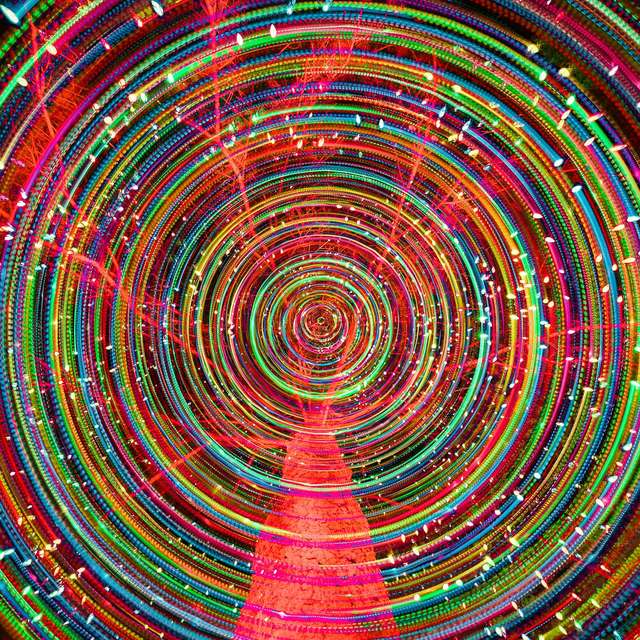
Christmas Lights & Intentional Camera Movement
Learn how to use ICM to capture creative in-camera effects using the festive lights of holiday season.
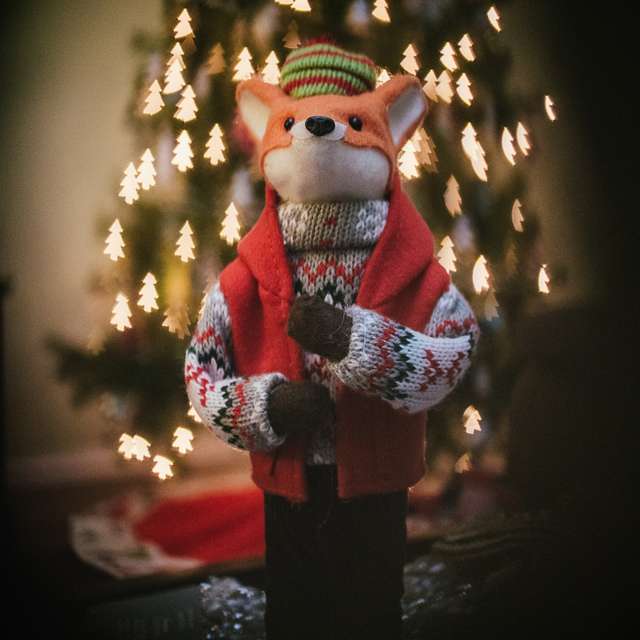
Creating Christmas Tree Shaped Bokeh
To spice up your holiday photos, try these tips on modifying your bokeh to be shaped like Christmas Trees.
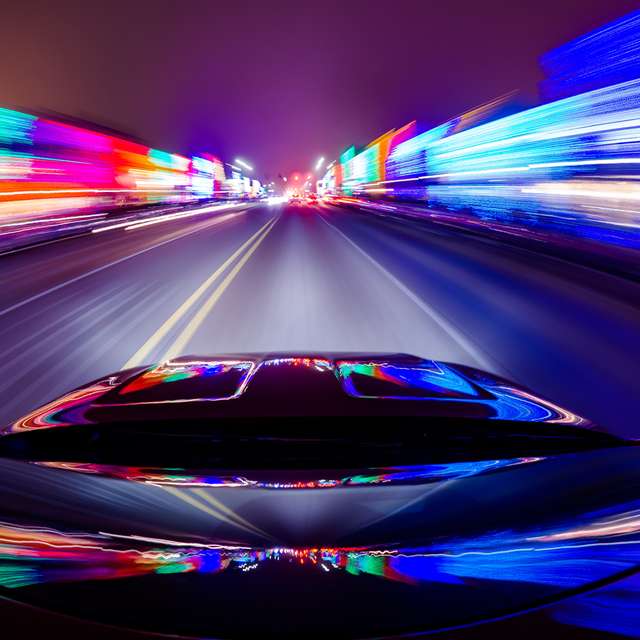
Behind the Shot: Warp Speed
Learn how Mike Boening turned holiday lights into an epic space effect.
